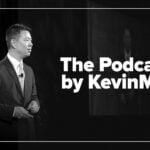I recently published a reflection on KevinMD, “A doctor’s duty on 9/11 in a small town,” a piece about clinical duty, quiet advocacy, and legacy. Boston University included it in my nomination for their Advocacy, Equity & Social Justice Alumni Award. I sent it to every major news outlet in my region. No one responded. One station asked if I’d go on camera. I agreed. Then, silence. This is the paradox of local news: Truth moves slowly, disinformation travels at light speed, and legacy gets buried under car crashes and mugshots. If it bleeds, it leads. If it heals, it’s ignored.
I’ve authored nine peer-reviewed studies on autism pharmacotherapy, funded by the National Institute of Mental Health through the RUPP Autism Network. The first paper addressed methodological rigor and design, laying the pediatric foundation for a network dominated by psychologists and psychiatrists. Then came our pivotal risperidone study, published in the New England Journal of Medicine. I presented those findings three months earlier at the Pediatric Academic Societies meeting, to the world. We followed with a blinded discontinuation trial. The NIMH Data Safety Monitoring Board halted it early. Why? Because discontinuing risperidone harmed children. That’s real medical research: reproducible, peer-reviewed, and clinically urgent.
Today, an estimated 280,000-560,000 children in the U.S. receive risperidone for autism-related irritability. That number excludes children in countries with universal health care, where access to evidence-based treatment is broader and less politicized. Yet citation tracking platforms show our studies received little national media attention. Meanwhile, poorly designed research with weak outcome measures (often from questionable sources) is amplified. The press avoids stories that challenge the current administration’s narrative. What was fair game for the previous president is now off-limits.
Fear.
Fear of zealots who threaten violence. Fear of political backlash. Fear of losing access, ratings, or advertisers. The press has traded courage for caution, and truth for timidity. It’s not just silence: It’s cowardice.
In the 10 largest U.S. cities (each with three commercial stations, one public outlet, and one newspaper) the silence is deafening. These outlets have the reach and responsibility to elevate stories that matter. Instead, they chase spectacle and avoid substance.
I’m not asking for attention. I’m demanding accountability. Journalism once stood as a bulwark against forgetting. Now it accelerates amnesia. The public square floods with noise, while stories of service and science drown.
I did not fear al-Qaeda on 9/11. I will not fear an administration that treats the First Amendment of the Constitution of the United States as optional, while swearing on the Bible to uphold it against all enemies, foreign and domestic. Silence in the face of truth is not neutrality. It’s complicity.
My great-grandfather-in-law, Thomas Welles, transcribed the Fundamental Orders of Connecticut, the first written constitution for a government elected by free people. It passed with only his signature. He knew the risk. Signing it meant he could be hanged for treason by the Governor of Massachusetts. He signed anyway.
As an Air Force Major (a field-grade officer), I wrote a blank check made payable to the United States of America for an amount up to and including my life. That oath didn’t expire when I left active duty. It threads through every clinical trial, every mentorship, every act of public service. Some would say I am a hero. I am only a developmental pediatrician and a Christian who follows the teaching of our Lord and Savior to the best of my ability.
I showed up on 9/11. I showed up for the NEJM study. I showed up when the Data Safety Monitoring Board halted our trial because discontinuing risperidone harmed children. I showed up for Boston University. I showed up for the press. I showed up for hundreds of thousands of children in America with ASD and disruptive behavior.
The question is: Will the press show up to publish the truth?
If not, I will keep showing up anyway. Because silence may be contagious, but courage is still contagious too.
Ronald L. Lindsay is a retired developmental-behavioral pediatrician whose career spanned military service, academic leadership, and public health reform. His professional trajectory, detailed on LinkedIn, reflects a lifelong commitment to advancing neurodevelopmental science and equitable systems of care.
Dr. Lindsay’s research has appeared in leading journals, including The New England Journal of Medicine, The American Journal of Psychiatry, Archives of General Psychiatry, The Journal of Child and Adolescent Psychopharmacology, and Clinical Pediatrics. His NIH-funded work with the Research Units on Pediatric Psychopharmacology (RUPP) Network helped define evidence-based approaches to autism and related developmental disorders.
As medical director of the Nisonger Center at The Ohio State University, he led the Leadership Education in Neurodevelopmental and Related Disabilities (LEND) Program, training future leaders in interdisciplinary care. His Ohio Rural DBP Clinic Initiative earned national recognition for expanding access in underserved counties, and at Madigan Army Medical Center, he founded Joint Base Lewis-McChord (JBLM) CARES, a $10 million autism resource center for military families.
Dr. Lindsay’s scholarship, profiled on ResearchGate and Doximity, extends across seventeen peer-reviewed articles, eleven book chapters, and forty-five invited lectures, as well as contributions to major academic publishers such as Oxford University Press and McGraw-Hill. His memoir-in-progress, The Quiet Architect, threads testimony, resistance, and civic duty into a reckoning with systems retreat.




















![Stopping medication requires as much skill as starting it [PODCAST]](https://kevinmd.com/wp-content/uploads/The-Podcast-by-KevinMD-WideScreen-3000-px-4-190x100.jpg)
![Weaponizing food allergies in entertainment endangers lives [PODCAST]](https://kevinmd.com/wp-content/uploads/The-Podcast-by-KevinMD-WideScreen-3000-px-3-190x100.jpg)

![AI censorship threatens the lifeline of caregiver support [PODCAST]](https://kevinmd.com/wp-content/uploads/Design-2-190x100.jpg)
